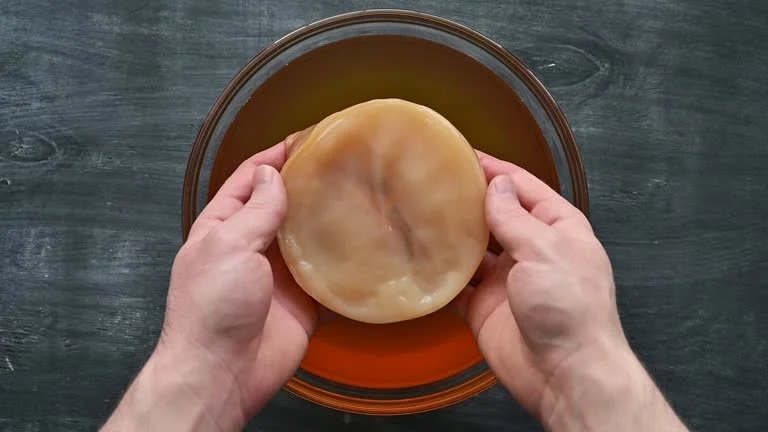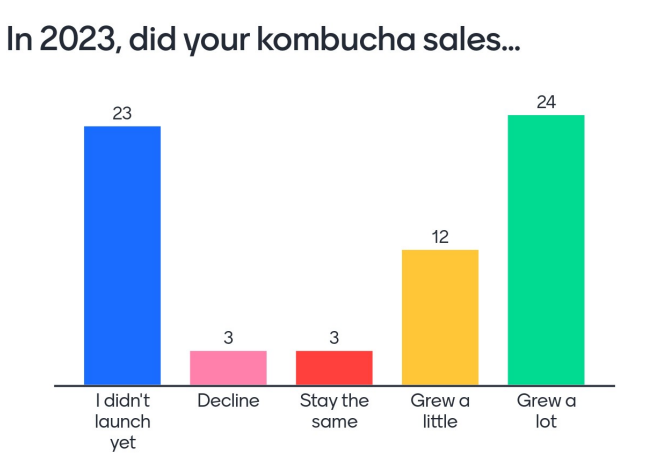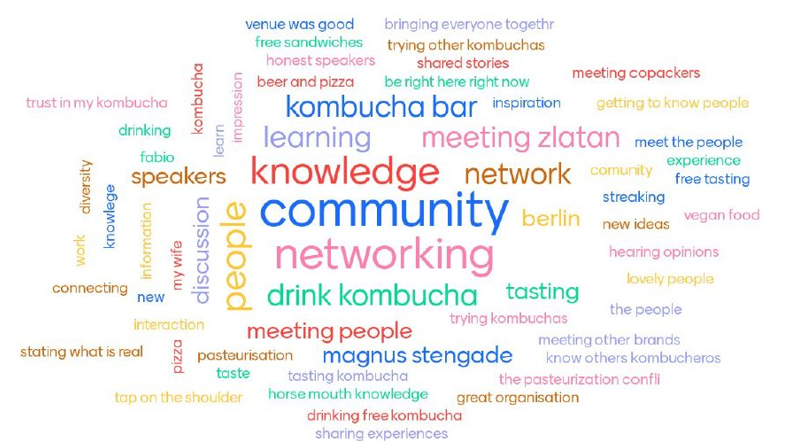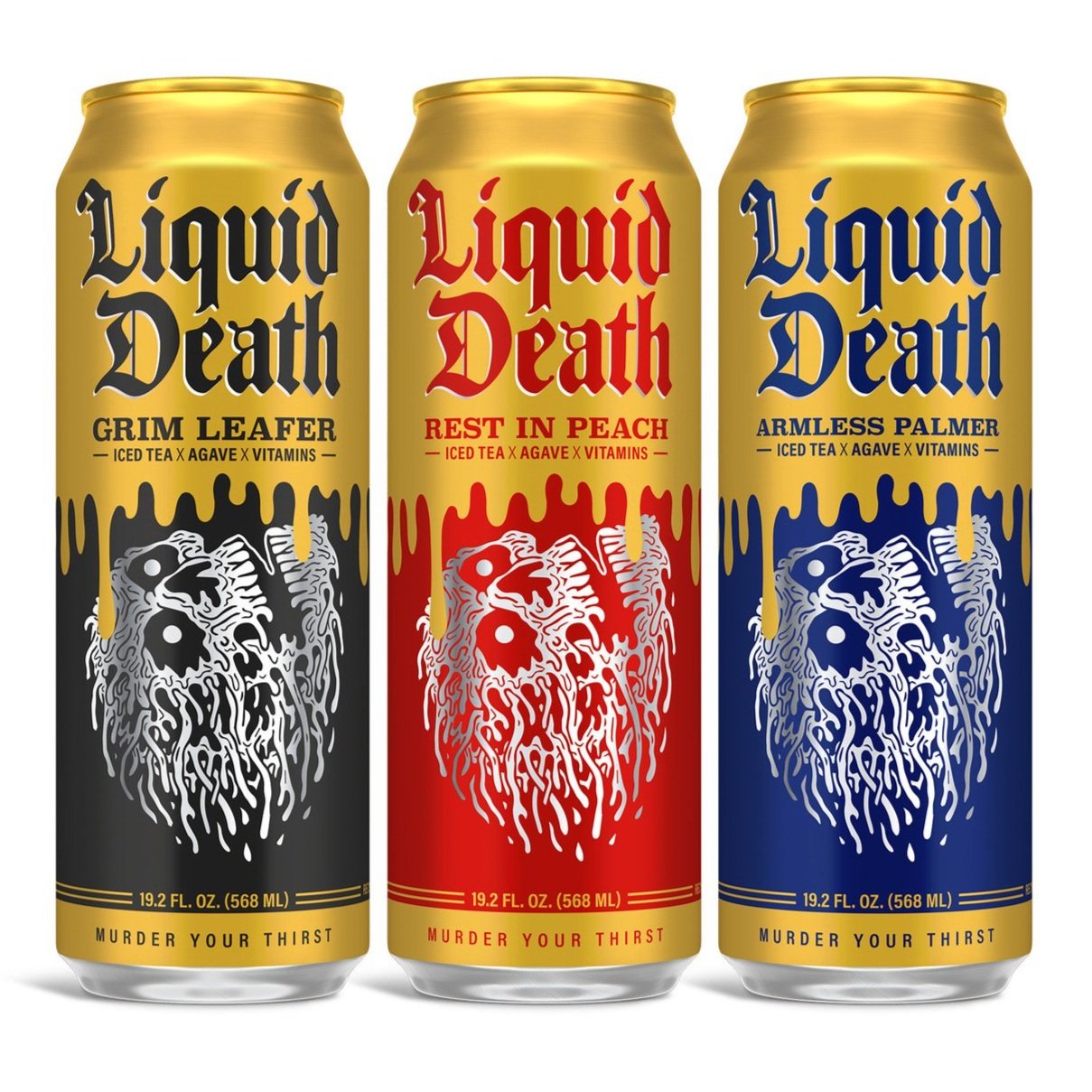When we think of ‘kefir’ we likely picture probiotic-rich, gut-friendly dairy products. While milk kefir is well-known and widely consumed in Western diets, there’s another type of kefir that deserves just as much attention: water kefir!
Water Kefir – The Basics
Water kefir is created when water kefir grains are added to a sugar-water solution and left to ferment. Despite the name, these grains are not actual grains but rather a SCOBY (symbiotic colony of bacteria and yeast). Not to be confused with the rubbery, disc-shaped SCOBY used in kombucha, the grains are clusters of micro-organisms encased in a translucent, gelatinous shell and look more like little crystals.
Water kefir grains
During fermentation, the bacteria and yeast in the grains break down the sugar, producing lactic acid, acetic acid, amino acids, vitamins and minerals. Once the fermentation process is complete, the grains are filtered out and the result is a drink that is slightly sweet and tart. Unlike kombucha, which has a more acidic bite, water kefir tends to have a gentler flavour, making it appealing to those who prefer a subtler taste.
The Origins of Water Kefir
Water kefir is known by various names, including tibicos, tibi water, kefir aqua and water crystals, amongst others. While humans have been fermenting food and drinks for thousands of years, there is much more evidence of dairy kefir production and consumption than earlier civilizations’ use of water kefir grains. As a result, its origins are somewhat mysterious but one popular theory suggests that it dates back to Mexico, where these granules, called ‘tibi’, grow at the base of the prickly pear cactus and have been used for centuries in traditional Mexican fermented drinks like tepache.
Different cultures around the globe have also developed their own variations, contributing to the slight differences in the microorganisms found in water kefir grains in different parts of the world but all share very similar approaches and production methods.
What Does Water Kefir Do for Me?
First and foremost, water kefir tastes fantastic. Its subtle sweetness and tartness pairs with an almost endless array of flavours and can be crafted to delight even the most demanding palates.
Growth of the category, like in the wider functional beverages market, has also been driven by increasing numbers of consumers seeking out and choosing drinks that support a healthier lifestyle and diet. Significantly, water kefir contains significantly less sugar and is typically produced using natural ingredients, making it a healthier alternative to more traditional carbonated soft drinks.
In addition to the ‘bad stuff’ water kefir doesn’t contain, fermented food and drinks, including water kefir, can contain micro-organisms and other vitamins, minerals and micro-nutrients as a result of the fermentation process and ingredients used. Its perceived health benefits are thought to result from the blend of micro-organisms, amino acids, organic acids, water-soluble vitamins and a variety of micro-nutrients produced during fermentation.
How Is Commercial-Scale Water Kefir Made?
Brewing water kefir at scale requires careful monitoring of temperature, fermentation time, and hygiene to prevent contamination and ensure consistency and quality. Here’s a simplified breakdown of how commercial water kefir is made:
Dissolving Sugar: Organic sugar is dissolved in hot water in stainless steel tanks.
Fermentation: The sugar water is cooled, and water kefir grains are added. The mixture is left to ferment for 2-5 days.
Packing: After fermentation, the kefir is cooled and filtered before being packaged.
Quality Control: Throughout the process, pH, temperature, and alcohol content are carefully monitored to ensure the kefir remains high-quality and compliant with safety and quality regulations.
While relatively straight-forward to produce compared to other fermented beverages - with the right space, equipment and expertise - there are more convenient solutions available for producer’s looking to manufacture water kefir at commercial-scale. Good Culture’s water kefir base has been developed to simplify the process for our partners and provide a consistent, high-quality and efficient solution for producers and allow them to focus on the what’s most important to any business: growth! Contact us today to find out more how easy it could be to take advantage of the opportunities water kefir offers.
Water Kefir: The Future of Beverages?
A survey conducted by Ipsos in 2018 estimated that about 3% of the world’s population was vegan – a massive 230 million people - and that number is bound to have grown over subsequent years with the explosion in interest of plant-based diets. Add to that that over two-thirds of the world’s population are affected by lactose malabsorption/intolerance and it is certainly no surprise that more and more people, more often, are seeking out and switching to non-dairy/plant-based, functional alternatives to traditional staples and beyond to support their individual health and lifestyle needs.
Water kefir therefore is perfectly positioned to benefit from these seismic shifts in consumer behaviour. Free of diary but perceived to deliver similar benefits to milk kefir, water kefir offers a versatile, mild-tasting, accessible and convenient alternative to milk kefir and other functional beverages.
Thanks to its broad appeal and perceived health benefits, water kefir is now available in more supermarkets around the world than ever. Whether you’re looking for a refreshing soda substitute or a healthier alternative, water kefir is a delicious, positive choice.
Interested in creating your own water kefir business or product range?
Wherever you are on your particular journey, Good Culture is here to support and guide you. At heart, we are passionate about drinks, quality, innovation and the creative pursuit of entrepreneurship. Our mission is to inspire, empower and support you to build thriving, profitable & sustainable businesses. We have built years of experience and expertise by helping companies all around the world create, develop, commercialise and grow their businesses with the supply of the highest quality fermented beverage ingredients, unparalleled commercial and technical support and access to our amazing network of co-packers and flavour developers.
So, are you interested in taking advantage of the opportunities functional beverages offers or have an existing brand and need help taking it to the next level? The amazing team at Good Culture can help with anything you need.
Want to hear how we can help you do kombucha better? Contact us today.



















